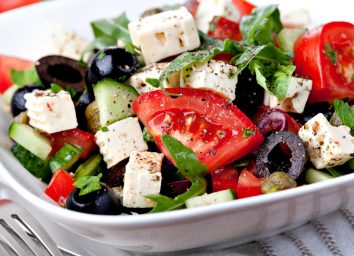The Unhealthiest Diets of 2020, According to Experts
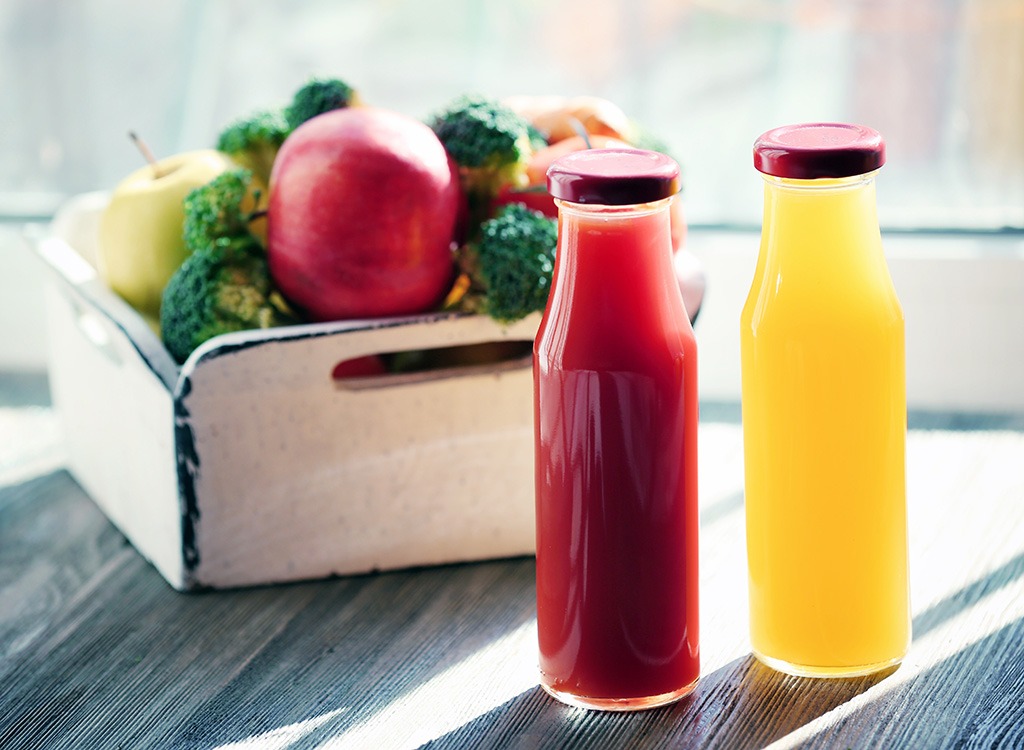
Eating a balanced, healthy diet is important for looking and feeling your best throughout your days. But unfortunately, there are a few fad diets out there that require dieters to seriously restrict their eating in order to gain a “quick fix” solution to their weight gain. Nevertheless, numerous registered dietitians and doctors have made the point that restrictive dieting is unhealthy—especially when you look at some of the unhealthiest diets that become popular phenomena in 2020.
If you’re feeling motivated to feel your best in 2021, do yourself a favor and avoid these listed unhealthiest diets of 2020. Their restrictive rules may give you fast results but won’t give you that long-lasting health that you really crave. Here’s what health experts had to say about the unhealthiest diets of 2020, and for more healthy eating tips, be sure to check out our list of The 7 Healthiest Foods to Eat Right Now.
Keto Diet
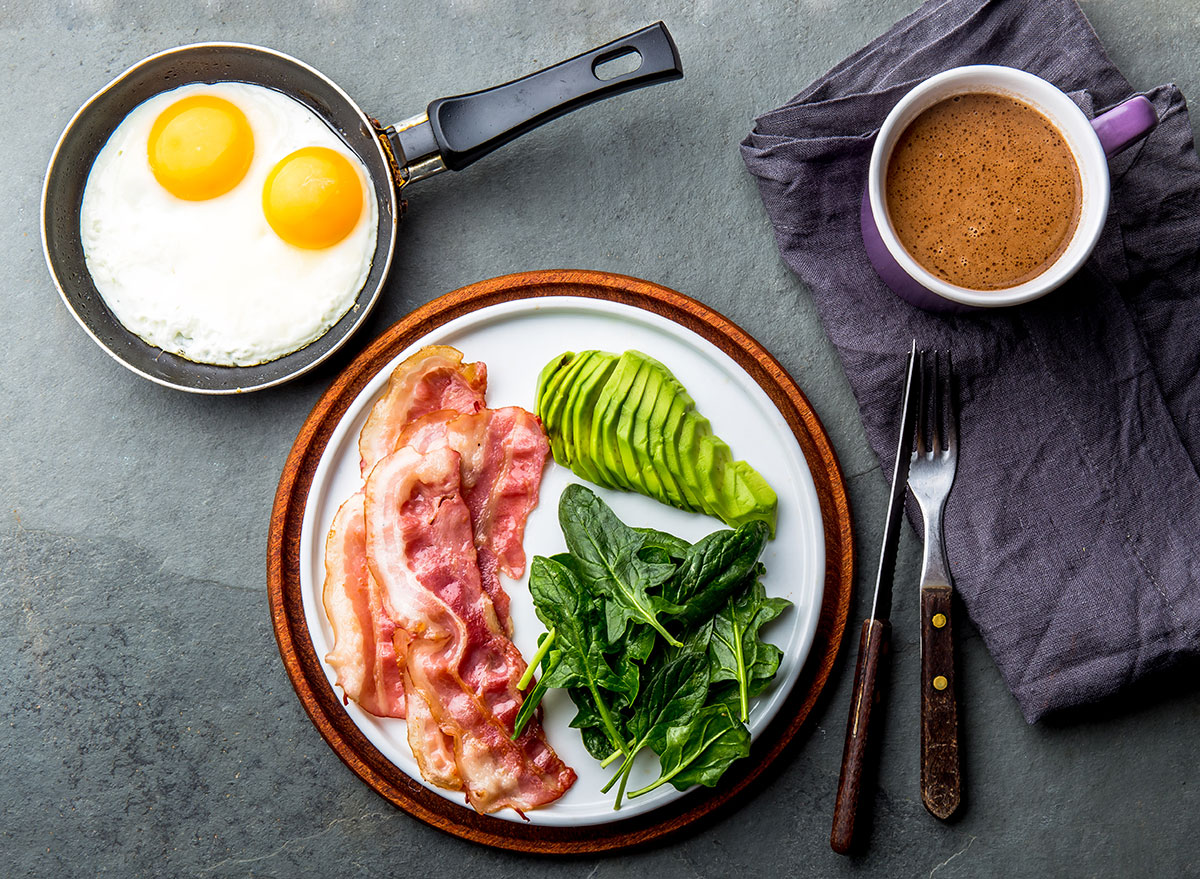
“The keto diet gained a lot of popularity in 2020, however, I don’t recommend this diet to anyone because of the negative health implications found in studies,” says Sandy Younan Brikho, MDA, RDN, and founder of The Dish On Nutrition. When following the keto diet, we are told to severely restrict carb intake, however, our brain’s main source of fuel is carbs. This is what leads to irritability, fatigue, etc. Any diet that tells you that fruit is ‘bad’ is a bad diet that you shouldn’t follow because fruits are a great source of vitamins and minerals, contains fiber, filled with antioxidants, and studies have shown that fruits and veggies decrease a person’s risk of developing heart disease, cancer, diabetes, and inflammation. Any diet that tells you fruit is “bad” is a red flag immediately.
“Studies have shown that weight loss results are not long term while on this diet,” says Younan Brikho. “Because of the high fat intake, it increases your risk of developing heart disease. If carbs are a weakness for you, you never learn how to control yourself around carbs because you have eliminated them from your diet. So when you add carbs back in eventually, you never learned how to control yourself therefore they remain a weakness and could lead to weight regain.”
“This diet is low in fiber which causes constipation and if the diet is followed long term, this could lead to hospitalization as a result,” says Younan Brikho.
Here are 9 Warning Signs You’re Not Eating Enough Fiber.
Blood Type Diet
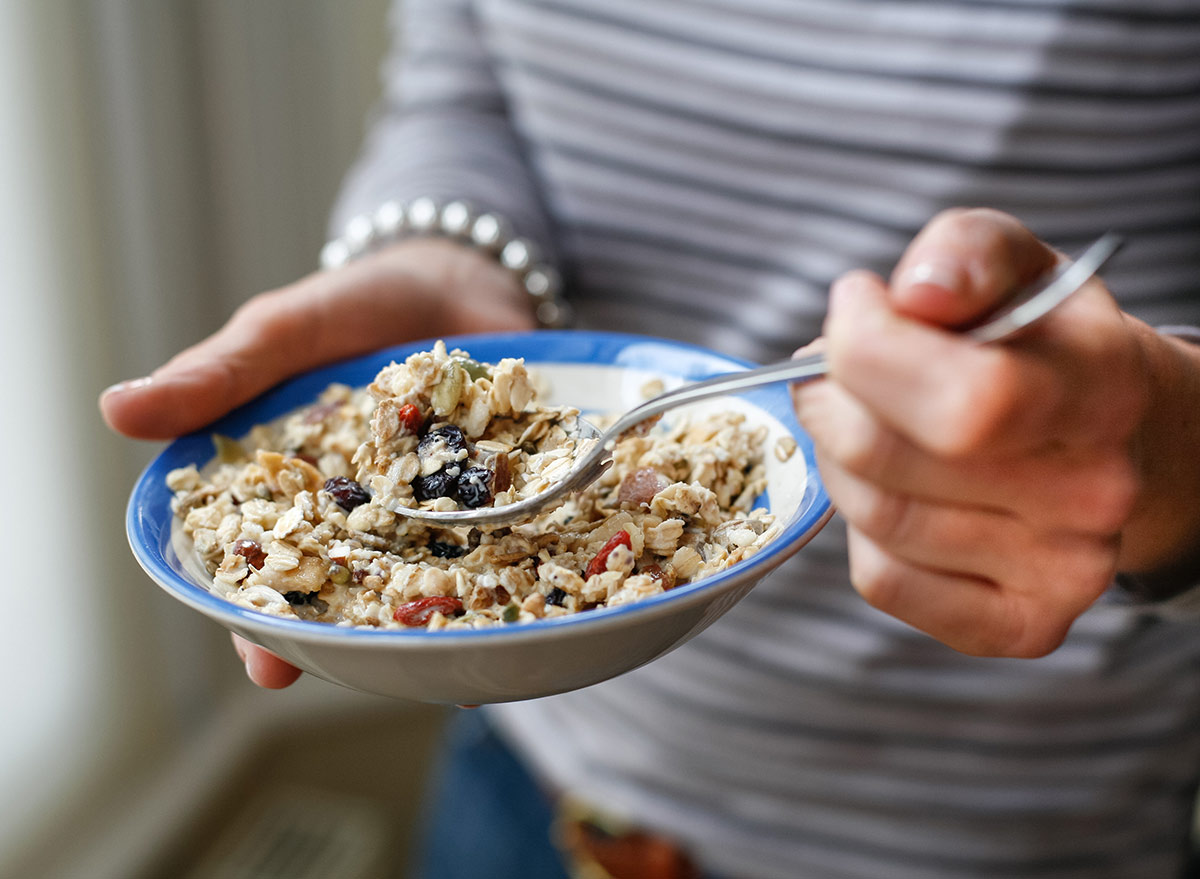
“Centered on principles that diet, exercise, and stress reduction should be determined by blood type, based on the theory that specific proteins found in foods can create negative reactions with your blood,” says Molly Kimball, RD, CSSD. “As far as I’m aware, there is no peer-reviewed published science to support this approach. It can be unnecessarily restrictive, and certainly isn’t tailored to an individual’s preferences or lifestyle.
“This diet primarily focuses on consuming more whole foods which could be beneficial for people who are consuming an excess amount of processed foods,” says Younan Brikho. “However, while studies do show that different blood types could increase someone’s risk of developing disease, they do not show any correlation between blood type and diet.”
For even more healthy eating tips, be sure to sign up for our newsletter.
Meal Replacement Shake Diet
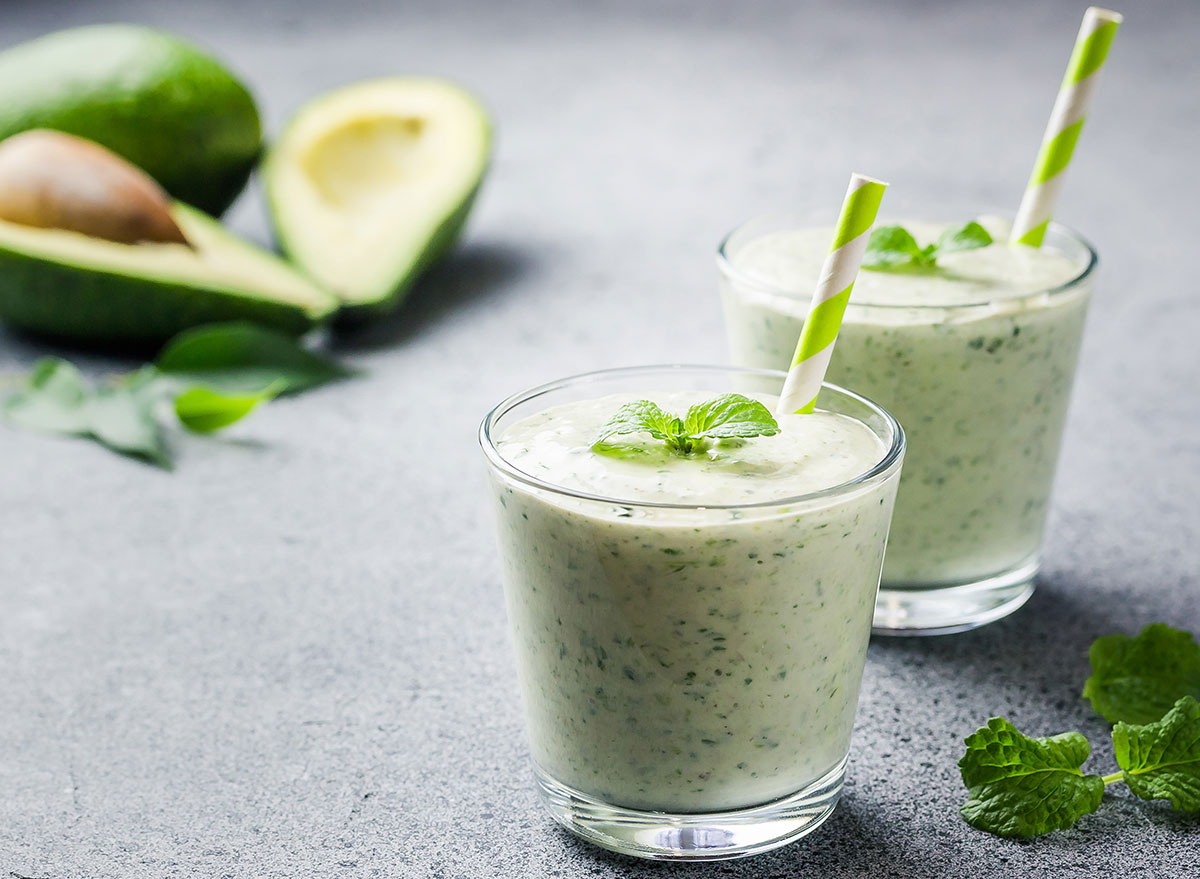
“This diet replaces meals and has been shown to have short-term weight loss success with people, however, most find it challenging to keep the weight off after they reintroduce whole foods back into their diet,” says Younan Brikho. “Since they eliminated food completely, people on this diet have still not learned what to eat, how much to eat, how frequently to eat, what works for their body, how to incorporate their favorite foods in their diet, or how to eat out in a healthy way. All of these skills would lead to successful weight loss long term. However, this diet doesn’t teach people any of that and as a result, they regain weight after quitting this diet. In addition, since this diet does not contain any whole foods, people are missing out on nutrients and are consuming shakes that are highly processed.”
“If someone wants to drink smoothies, that is different! A smoothie made from greek yogurt, frozen strawberries and bananas, then they are getting fiber, the nutrients of whole foods, protein, and fruit,” says Younan Brikho.
Or try one of these 27 Best Immune-Boosting Smoothie Recipes!
Paleo Diet
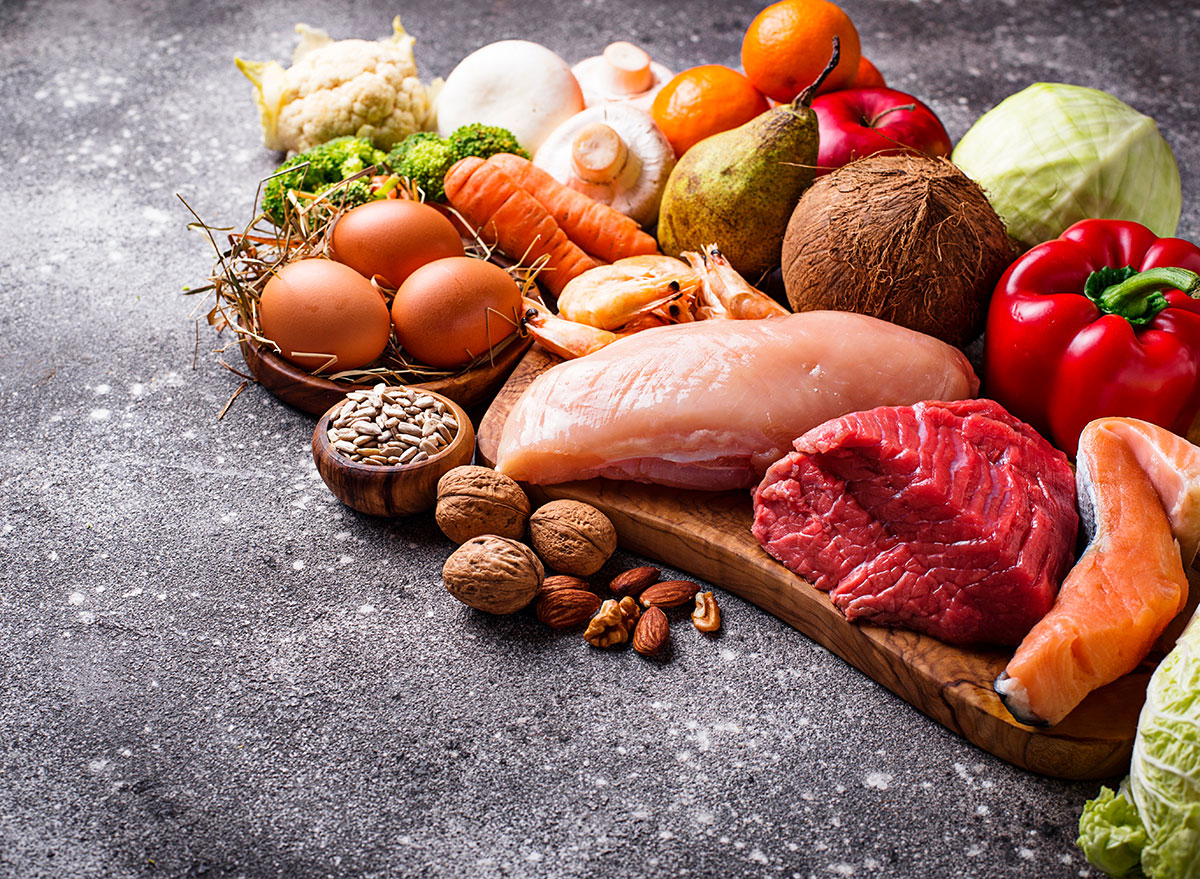
“This diet eliminates several food groups such as wheat, dairy, grains, and legumes, all of which have important nutrients that you will lose because those food groups were eliminated. This could lead to nutrient deficiencies. In addition, this diet does not support long term weight loss success,” says Younan Brikho.
Baby Food Diet
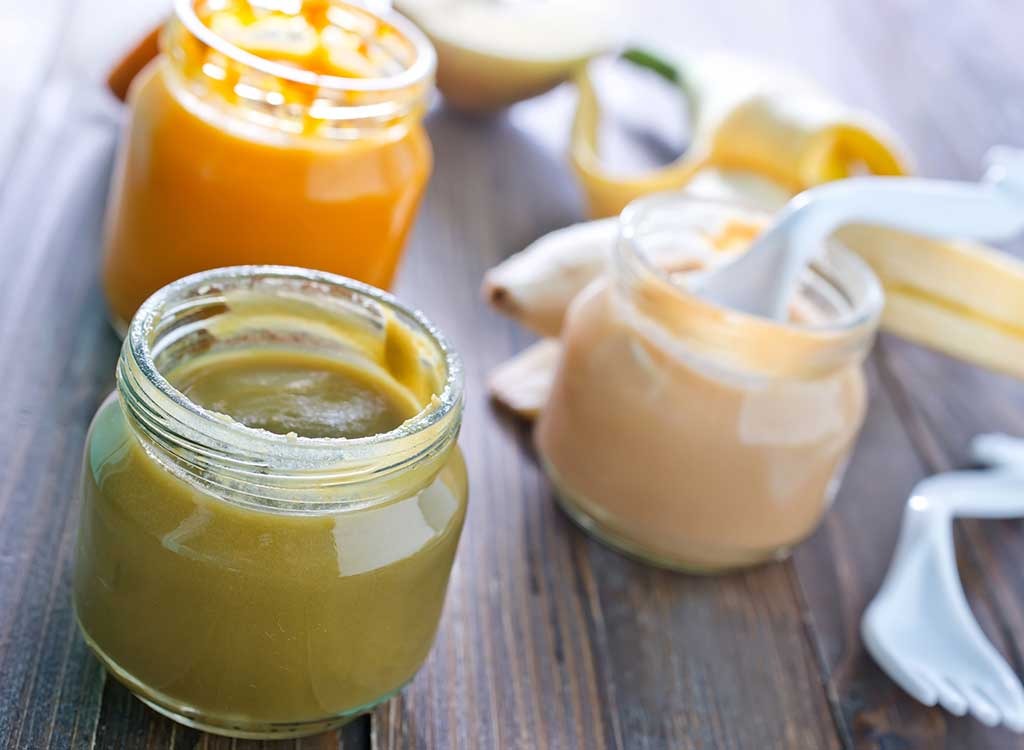
“The Baby Food diet was an internet sensation back in 2010 and is still trending in 2020,” says Cheryl Mussatto, Clinical Dietitian and Author of The Nourished Brain. “This diet promises quick weight loss by eating up to 14 small jars of pureed baby food either as low-calorie snacks or for replacing two meals a day while allowing only one grown-up meal a day. Obviously not meant for long-term, trying to meet daily nutrient needs let alone finding fulfilling satisfaction from bland-tasting foods meant for babies, will quickly become boring. Even though celebrities have tried it as a quick ‘cleanse’ or reset, there is little to no scientific proof it has any long-term benefits. Any weight loss experienced will be rapidly regained once you go back to ‘normal eating.’ Babies may enjoy this way of eating but for adults, it’s not worth the effort. Besides, even babies are smart enough to eventually out-grow eating baby foods.”
HCG Diet

“The HCG Diet is an unsafe and unsustainable method for losing and is a ‘thumbs down’ diet I do not endorse,” says Mussatto. “It’s a fad diet promoting rapid weight loss allowing only 500 calories a day while taking supplements several times a week of human chorionic gonadotropin (HCG), a pregnancy hormone. Overly restrictive and flat-out dangerous, it starves the body of calories, slows metabolism, triggers loss of muscle mass, and could lead to disordered eating. Don’t do it. Putting your body in restrictive mode will only lead to extreme overindulging once you go off the diet.”
“It’s likely that any weight loss experienced is due to more to the very restrictive 500-calorie diet than the hCG injections,” says Kimball. “Plus, supplementing with hCG can stimulate testosterone production in men, and if used long enough, in high enough doses, it could suppress natural testosterone production.”
Five-Bite Diet

“This diet is created by Californian internist Alwin Lewis, MD, the Five-Bite Diet needs you to omit breakfast and then only you can eat five bites of your meal at lunch and dinner,” says Shannon Henry, RD from EZ Care Clinic. “The very minor portions of this diet will help in weight loss, but the unbelievable restriction of eating only 10 bites of food each day is not a healthy way to lose weight.”
Instead, try one of these Simple Ways to Lose Weight Starting Now, According to Experts.
Juice Cleanses
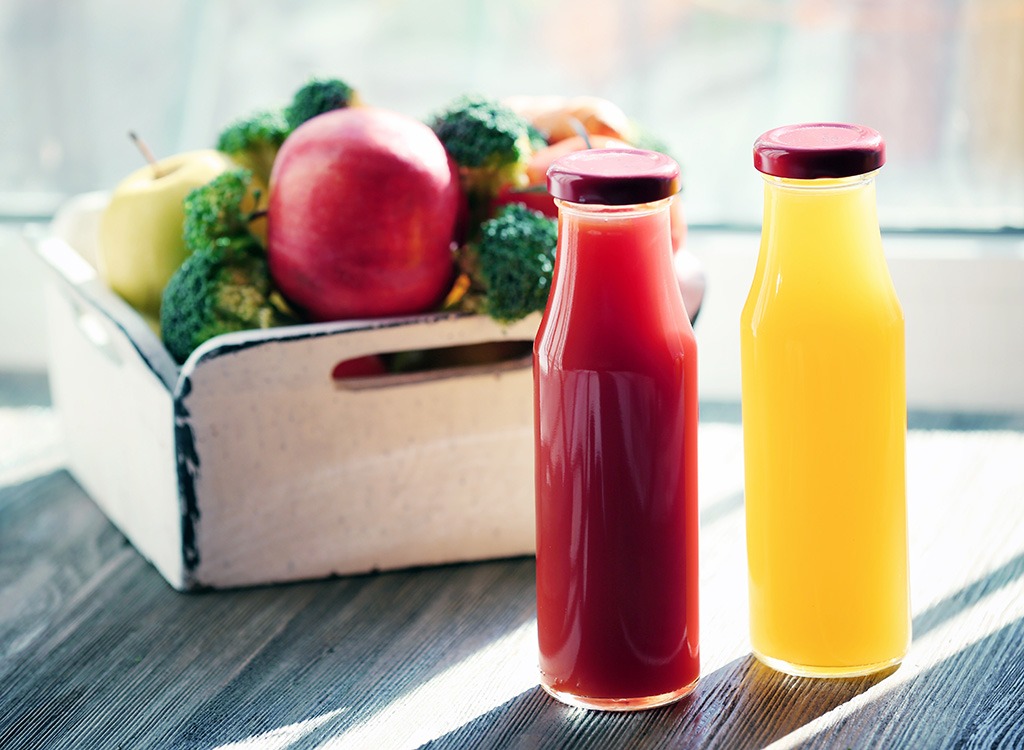
“The common weight loss from juicing is due to dehydration and cleaning out your bowl, which is not good and much less safe,” says Henry. “Dehydration can lead to dizziness, nausea, and headache. It can also lead to an increase in malnutrition. When you flush your stool, you disrupt the bacterial colonization that actually helps you. As a result of these juice cleanse diets, your gut becomes out of balance, leading to digestive irregularities.”
Detox Diets
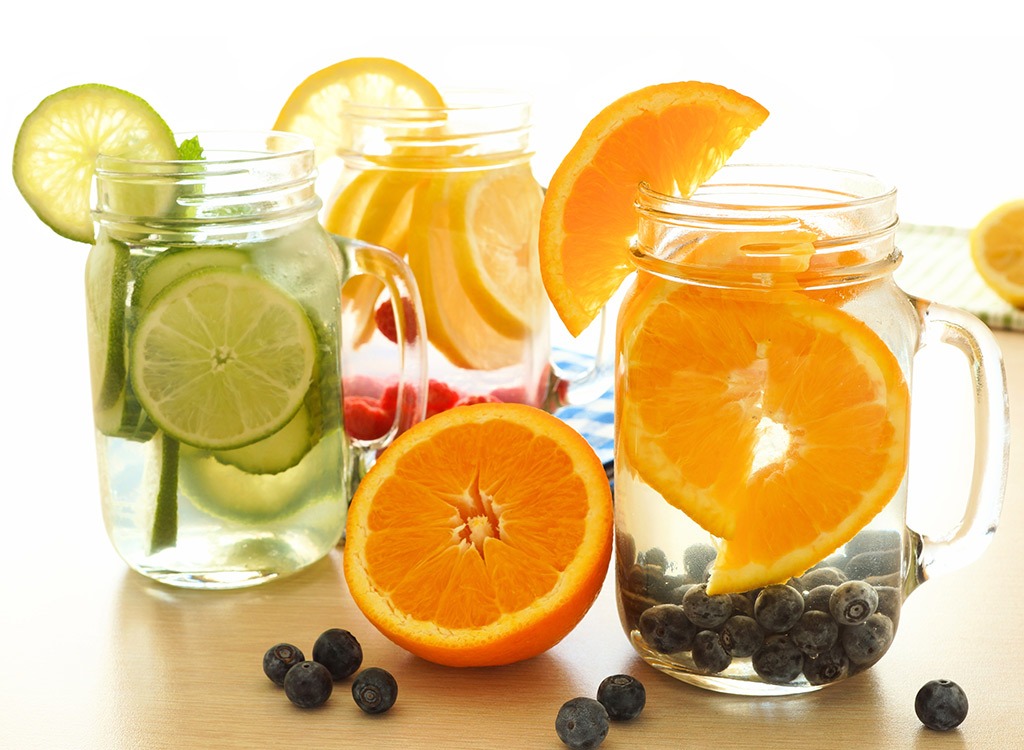
“Now more than ever, people are interested in strengthening their immune system through diet. Many are turning to detox diets or cleanses. These are diets marketed to cleanse the body of ‘toxins’ and help’boost’ the immune system,” says Mackenzie Burgess, registered dietitian nutritionist and recipe developer at Cheerful Choices. “Truth is, our bodies are already built to continually cleanse our system. And when it comes to our immune system, the best way to keep it strong is to consume a balanced diet rich in colorful whole foods like fruits, vegetables, grains, lean protein, and healthy fats. These foods provide important vitamins and minerals that help keep us healthy.”
Following serious calorie restriction.

“Any calorie-restricted diet which is often seen as anything lower than 1500 calories per day, sometimes as low as 1000-1200 calories per day,” Rachel Fine MS, RD, CSSD, CDN, and owner of To The Pointe Nutrition. “Restrictions result in a host of biological consequences that cause us to (literally!) want what we think we ‘can’t have.’ When we restrict carbs and/or fat, the body releases specific hormones to counter the restriction, promoting increased cravings of said macronutrients. The entire ‘eat less’ mindset that drives modern diet culture is an extremist view that is bound to fail. An ‘eat less’ mindset can set us up for a cycle of guilt when unfair expectations are not met due to the biological consequences of food restrictions (such as increased cravings). Dieting standards are unfair because we are not biologically equipped to under-fuel our body.”
Any restrictive diet, actually.

“All diets are unhealthy. Period,” says Katy Zanville, MS, RD and a certified intuitive eating counselor. “When someone is restricting calories or entire food groups and relying on external forces to dictate how much, when, and what to eat, it can lead to binge eating, feelings of deprivation, and disconnection from hunger and fullness cues. Dieting can also lead to more stress around food and eating which can raise cortisol levels in our bodies and increase inflammation.”
Now you know which diets not to follow, you should try these Best Nutrition Tips from 2020 instead!
